Glenorchy bus mall deemed unsafe for people with disabilities
People with disabilities are routinely called names, have their groceries stolen or have rubbish thrown at them at a bus mall in Greater Hobart, a national royal commission has heard.
Police & Courts
Don't miss out on the headlines from Police & Courts. Followed categories will be added to My News.
THE Glenorchy bus mall has been identified before a national royal commission as an unsafe place for people with disabilities.
On Wednesday, an advocate said she knew about 20 Tasmanian people with intellectual disabilities who’d been called names, had rubbish thrown at them or had their groceries stolen at the bus mall.
Julie Butler, the Speak Out Advocacy practice leader, said all of her members who’d used the Glenorchy bus mall had suffered some kind of abuse there.
“The members really clearly told the Glenorchy council that they were starting to avoid the area. They were starting to not use public transport because they felt really, clearly unsafe there,” she told the Disability Royal Commission on Wednesday.
Ms Butler commended the Glenorchy council, which met with Tasmania Police and Metro Tasmania to improve safety in the bus mall, and increased the number of security cameras and presence of security workers.
Her evidence followed that of Glenorchy resident and wheelchair user Tim Marks, who said he’d been viciously attacked with “thugs” throwing bottles at him as he crossed the bus mall to buy milk at Woolworths.
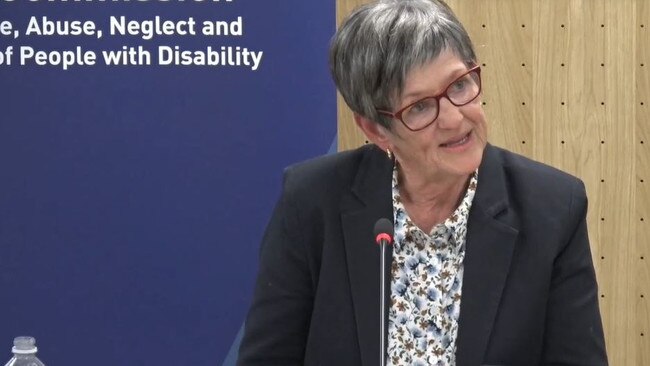
Ms Butler said her members felt unsafe on buses in Tasmania in general.
She said some drivers didn’t park at the bus stop, forcing people with disabilities to run before the bus took off again.
She said other bus drivers took off before they had the opportunity to sit down, causing them to fall over and be “ridiculed or laughed at” by other passengers.
Ms Butler said people with disabilities were so often called names and verbally abused in public that many avoided going out in public.
“A member reported sitting at a cafe with a friend and someone random, a young person came up to her and just stared at her and said ‘I hope you have a heart attack and die’,” she said.
She also told the story of a young man living in a rural north-west community who was frequently attacked by a group of teenagers who would call him “cat killer” and throw stones at him.
After a police officer intervened, the abuse escalated, with one of the teens bringing out a knife the following day.
Ms Butler said the young man was told by police to avoid the area and not go out at night. He ultimately decided to move town.
“He had no faith the police would follow it up,” she said.
“The police wouldn’t listen to him. He had reported it a number of times and nothing had happened.”
Glenorchy wheelchair user tells of horrific public abuse
Tim Marks won’t leave his home after 4pm.
The wheelchair user, whose leg was amputated after 17 heart attacks and six strokes, is terrified of the “thugs” that once pelted him with bottles in the Glenorchy bus mall.
He’s worried he will be harassed by people in the street near Northgate who block his path and call him a “cripple”, “useless”, “an inconvenience” – or try to rob him.
Mr Marks is so used to the abuse, so used to feeling like he’s about to be bashed, that he’s decided it’s “just not worth it” to leave his house after 4pm, when the trouble usually starts.
“Every time I go out, I fear that something is going to happen,” he told the Disability Royal Commission, currently sitting in Brisbane, on Wednesday.
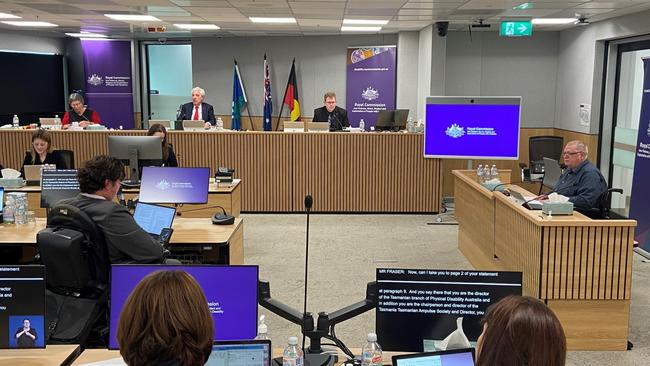
He said the day he was attacked with an onslaught of flying bottles, he was struck in the head and started bleeding.
Mr Marks called the police, but heard nothing back. He also spoke to the council, which reported the CCTV in the bus mall hadn’t been working at the time.
“Coming here to Brisbane is a very big deal for me because I have post traumatic stress disorder,” he told the royal commission.
“Even now I’m looking around to see if somebody is going to come behind me and attack me.”
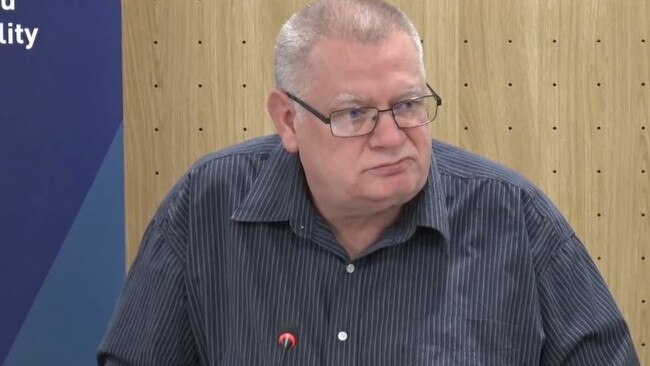
Mr Marks, who is running in the current local government elections for Glenorchy City Council, said he was diagnosed with reflex sympathetic dystrophy in 1997 and suffered repeated heart attacks and strokes.
He said due to a hospital error, he ended up losing his leg in 2010.
“In 2009 I kept telling the doctors I couldn’t feel my leg and they discharged me saying I was a mental case, that it was in my head. Unfortunately I had blood clots in my leg and by the time any doctor with brains got to see it, it was 2010 and it was either amputate or die,” Mr Marks told the royal commission.
He said he got little support from the hospital after the amputation too.
“I was told by the doctors when I left the hospital, ‘go home and die, you are useless, you are no good for anything’,” Mr Marks said.
“(That was) 12 years ago and I have proven them wrong.”
Mr Marks is now the president of the Tasmanian Amputee Society, the Tasmanian branch director of Physical Disability Australia, and is a member of countless other community support organisations.

As part of these organisations, he helps train council staff, the public and students “what it’s like to be disabled” – by wearing glasses that take away vision or spending time trying to navigate shopping or using a bathroom in a wheelchair.
He said the type of “thugs” that harassed and attacked people with disabilities should have an “automatic punishment” – where they were ordered to undergo a training course with people like himself.
“(They should) learn the same process as we teach in schools so that they understand, hang on, this is a normal person,” Mr Marks said.
“By educating the younger generation that is coming up to learn what it is like to be disabled, there will be less of these thugs that want to do these crimes.”
The current hearing, into violence against and abuse of people with disability in public places, will continue until Friday.
‘Followed, filmed, spat on’: Hobart woman’s lifetime of harassment
It was the middle of the day in central Hobart when a group of men blocked the path of short-statured woman Fiona Strahan and asked for a photo.
“Come on, you’re really cute,” they said.
When she declined, the men pressed on.
“Well how about a kiss and a cuddle then?”
It was hardly an isolated incident.
Over the years, Ms Strahan has been spat on, followed, yelled at, filmed and photographed – and asked by strangers “how do you have sex?”
On Tuesday, the Hobart woman and project manager of Disability Voices Tasmania spoke at the Royal Commission into Violence, Abuse, Neglect and Exploitation of People with Disability, which is currently holding public hearings in Brisbane.
She said throughout her life, she’d been subjected to public harassment and sexualised comments.
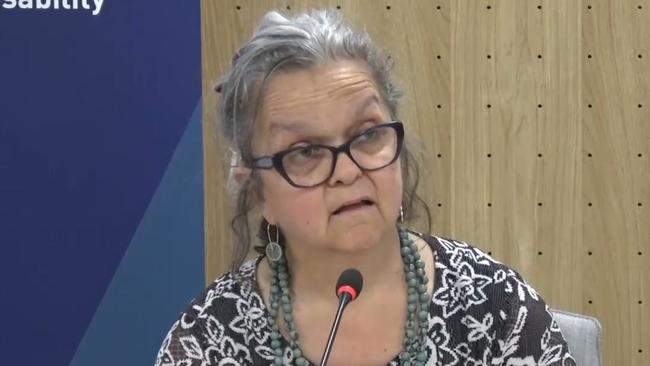
Another time in Hobart, she was followed by men in cars who yelled out: “here mate, here is your girlfriend” and “here is your new wife”.
Terrified, she tried to get away from the cars, with “all rationality” disappearing – and she stepped out in front of traffic to the sound of wheels screeching to a halt.
“My legs are shaking now telling (this story),” she told the royal commission.
Ms Strahan also said that the treatment of short-statured people over history had changed dramatically – to the point where now, they were frequently the source of “easy and quick” comedy in the media.
“If I were in (ancient) Egypt, I’d be the whiz-bang adviser to the queen,” she said.
But then we were the toys of kings and queens in England and then throughout the world we were in circuses and then we were experimented on during the Nazi occupation, and now here we are.”
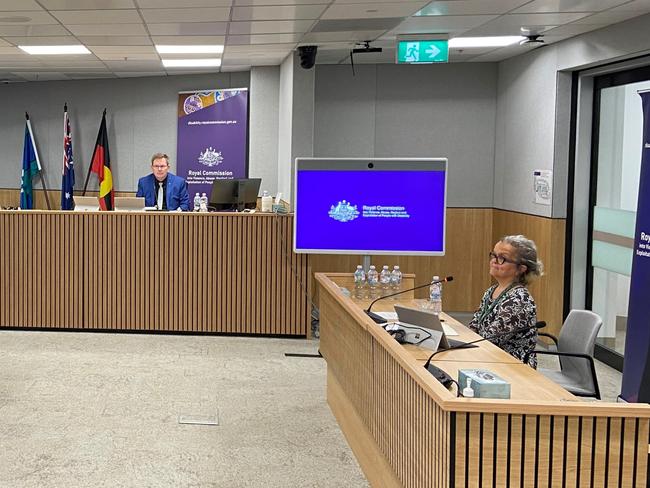
She said because of stories like Snow White and the Seven Dwarfs, short-statured people had been separated and rejected from the mainstream.
In fact growing up in Sydney, Ms Strahan stayed away from pantomime performances of the fairytale given the harassment that would unfold afterwards.
“I would be walking along the street and someone would say, ‘oh there’s Happy’,” she told the royal commission.
“Or I remember at times sitting on the ferry reading and I was frowning and someone said, ‘oh no need to be Grumpy’.”
Ms Strahan said she sometimes wished she could turn into a “ninja” and turn her harassers into “toads”.
But instead she’s taken her challenges and channelled them into a number of positive outlets, including rewriting Snow White in her own version, The D Word.
She also works with people with disabilities in Tasmania to create podcasts.
Ms Strahan also said more people with disabilities needed to feel empowered to enter politics as well as in “ordinary, not extraordinary” roles in society.
“Society won’t change unless we’re visible in a whole variety of roles and that our disability is as an equal and as a colleague,” she said.
“No matter how awful our stories are, no matter how painful and horrific they are, segregation is not the answer. We need to be everywhere.”
The current hearing, looking into violence against and abuse of people with disability in public places, will continue until Friday.`





